Two and a half years ago I was faced with the bittersweet decision to start looking for a working successor to my wildlife management K9, Bree. She was nearly 11 and had some arthritis, and training a new pup takes around 18 months. I couldn’t be without a working dog, so it was time, and the whole huge can of worms that is finding a responsible breeder was opened up. Finding the right breeder was an important decision. It would impact the next (hopefully) 12-15 years of my life and family and career. It was a difficult, emotional, frustrating, time consuming, exciting, and super rewarding process, and at the end of that long climb is a true pot of gold!
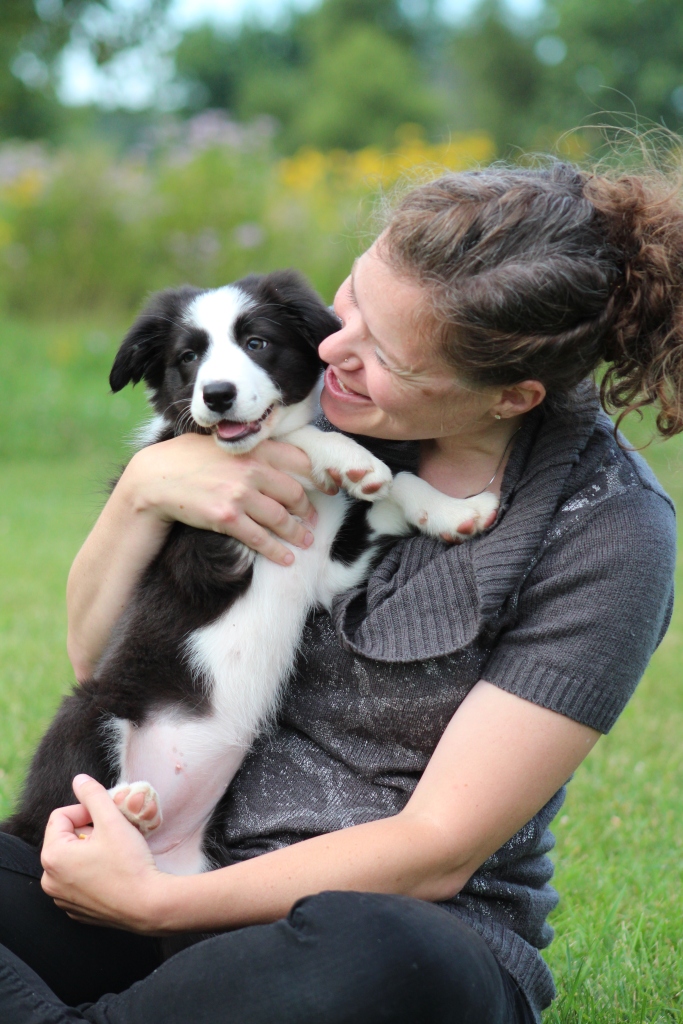
Let me first start by saying that I support both responsible breeding and responsible rescues/shelters. I do NOT support getting pups from puppy mills, pet stores, backyard breeders, or irresponsible rescues. But in that notion, I truly understand just how DIFFICULT it is to find a responsible breeder. There are so many aspects to it and it can be incredibly complicated and challenging to navigate. This blog will go over general aspects that I believe make a breeder responsible, and is based on the months and months of research I did and the scientific research available as well as on my personal code of ethics.
- Transparency and Communication. I cannot understate the importance of this. Transparency and communication are vital for this process. Transparency about their dogs’ flaws, transparency in their rearing methods, transparency of what testing and titling they do, transparency of the buying process, transparency of anything that goes wrong with the pups or their relatives (if there may be a genetic link). And communication too. Someone willing to answer your questions and talk you through the process. To provide support when things change. To talk about the dog’s lines. Now, buyers need to understand that breeders are often busy people and may not get back to them in 5 seconds. But there should be a reasonable timeframe of communication for both parties.
- The Breeding Has a Non-Emotional, Non-Financial Purpose. What does this mean? It means the breeder isn’t in it to make money or because they want to watch their dog be a mommy or their kids to witness the miracle of birth. Breeding dogs the right way is expensive, and unlikely to make a profit. If they are doing it to make money, they’re not doing it right. There needs to be a real, substantial reason behind the decision to create a litter of puppies. There are a LOT of healthy, happy, nice dogs that get put down in shelters every year due to lack of homes, so if you’re making more dogs, there should be a purpose behind it: working, sports, showing, etc. That purpose can even be just to create a good companion and a good pet. After-all, that is how 90% of owned dogs spend their lives and we need more stable, GOOD pet dogs.
- Proof of Purpose. With a purpose must come proof of the dogs’ abilities to fulfill that purpose in the litters they make. The dogs being bred should have proven that they themselves have what it takes to fulfill the purpose of the breeding. If breeding for work like herding, the dogs should work. If breeding for show, the dogs should be titled in the show ring. If breeding for sports, the dogs should be titled in their respective sports. If breeding for companionship, the dogs should prove that they have bomb proof temperaments and the trainability to succeed in a basic pet home with, for example, obedience titles and CGC-U. It shows that they are trainable and can perform under pressure in a busy environment. They should also be companion animals in the home if that is what they are breeding towards and not living in kennels or out in a barn. I would also want to see proof in the form of videos of the dogs in all sorts of situations that a pet dog might encounter to show how they handle it.
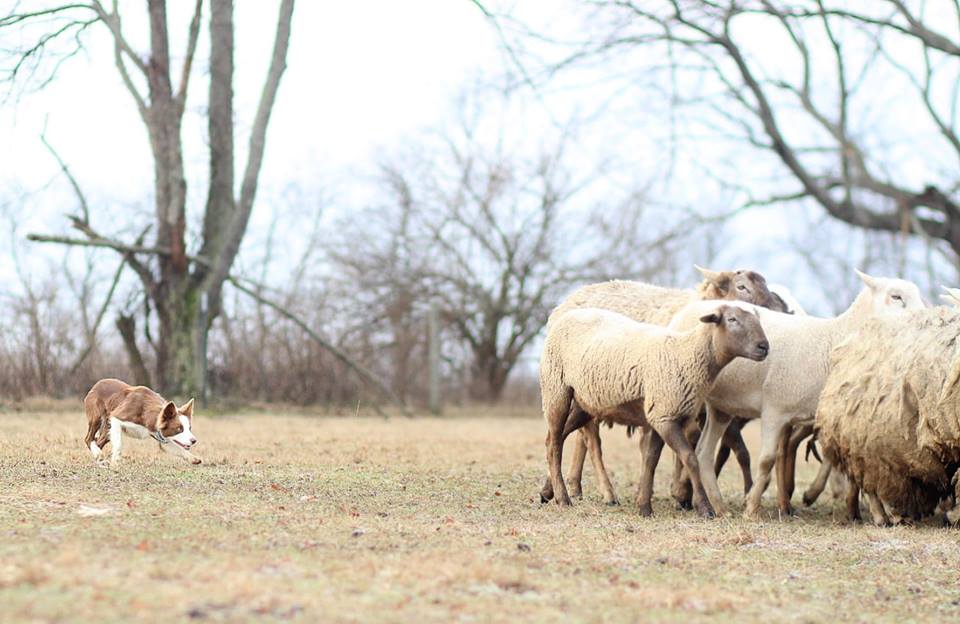
- Proof of Good Health. Good health for breeding purposes doesn’t mean that the dogs saw a vet for a general wellness and that vet said they were healthy. It means a genetic test that encompasses all heritable diseases common to the breed(s). Just because the adult dog is healthy doesn’t mean that the puppies will be. Many genetic diseases are recessive, which means they need two copies of the bad gene (one from each parent) to be sick and with only one copy, they are fine. You can’t tell by anything other than a genetic test whether a dog carries a recessive genetic disease. This is why testing BOTH parents is important. You need to make sure that it is a complementary pairing for genetic health and not going to produce a seriously sick puppy. It also means checking their joints, eyes, hearts, breathing, and whatever else commonly goes wrong in that breed(s). Most anomalies in anatomy (such as hip dysplasia) have a strong genetic component. On top of that, if there are health issues known in a breed that isn’t testable (such as epilepsy in border collies), then a breeder should be doing their research via pedigrees and ancestry to keep that risk as low as possible. If you are going to bring puppies into the world intentionally, you need to make sure you are doing your due diligence to make sure those pups are healthy.
- Breeding for the Whole Dog. Having a purpose in the breeding is important, but it shouldn’t be the only focus. There are a lot of poor breeders out there that ignore important aspects of a dog just because it performs well in one venue or another or looks nice or is a “rare” color. A good breeder will look at the whole dog. They wont breed a dog that works well but has a poor temperament. They wont breed a good agility dog that’s completely neurotic off the course. They wont breed a dog that does well in the show ring but has bad hips or a genetic disease. And they certainly wont breed a dog just because it’s a certain popular or flashy color. No dog is perfect, and every dog will have some flaws and weaknesses, but the goal should be to create a dog that fulfills the purpose, is healthy, AND has a good temperament.
- Properly Matching Breeding Pairs. Most good breeders wont use the same male for all of their females. Most wont even use a male they own, though they can. That is because of what I said above. No dog is perfect, and if we chose to only breed “perfect” dogs, we would have an ungodly level of inbreeding and only create more problems in the long run. But we can mitigate those flaws by choosing a complementary partner for them. Have a dog that is a little more sensitive? Pick a very resilient mate. Too light boned? Pick a more substantial mate. Only fair hips? Pick a mate with excellent hips, etc. The chances that one male will be the right match for multiple females the breeder owns isn’t common. That doesn’t mean it can’t happen, but I always ask the breeder what their ideals were when making the pairing. Searching for the right match for a dog can be a time consuming and stressful process with everything involved, but it is a hallmark of a good breeder.
- Applications and a Waitlist. Good breeders aren’t breeding 100 puppies a year. They are very careful with their litters and put a lot of time, money, heart, love, and effort into them. Because of this, a good breeder will want to make sure that people buying from them are a good fit for their puppies to set everyone up for success. This usually means an application, interview, vet checks, landlord checks, etc. Because they don’t produce a lot of puppies, most good breeders have placements for their puppies well in advance of the actual breeding and a waitlist in order to get a puppy. A well bred puppy is worth waiting for!
- A Good Rearing Protocol. How are the puppies whelped? Where are they kept? How clean are things? Are they able to stay warm? How much supervision do they have? How often are the checked over to make sure they are gaining weight and not showing any health concerns? Are they wormed at the appropriate time? Are they seen by a veterinarian and given appropriate vaccinations? What does the breeder do if something goes wrong with a pup or mom? While it is OK for the breeder not to allow you into their home (security for their families and safety for the puppies), they should be willing to do a video call to show you where and how puppies are being kept, with little warning. They should have been willing to bring the mom to meet you before puppies are born, and see about arrangements to meet the sire if possible (not always due to good breeders sometimes going across the country or even an ocean to find the right stud).
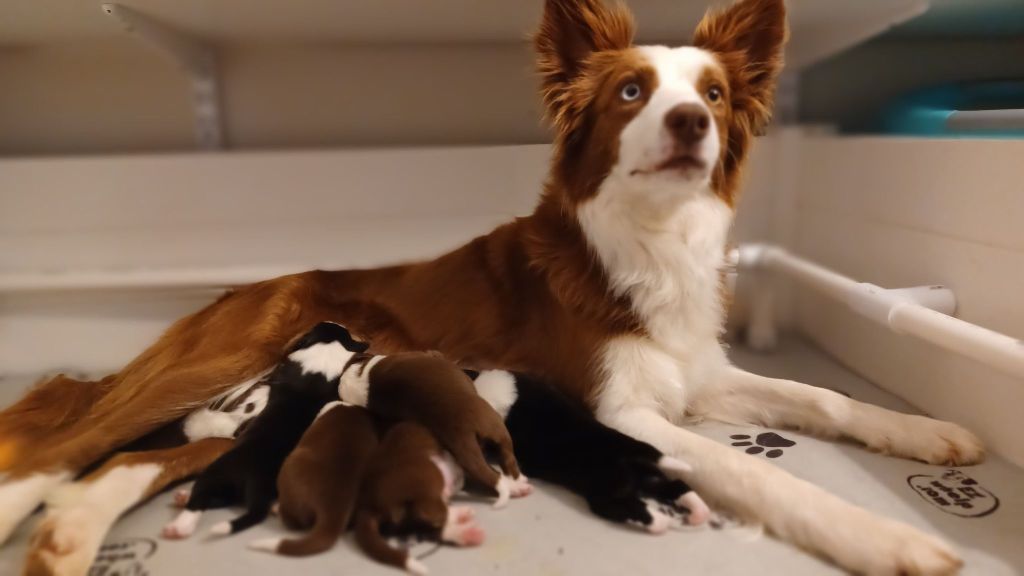
- A Socialization and Training Foundations Protocol. Puppy brains are little sponges and they have critical learning periods that happen while the puppy is with the breeder. A good breeder will take advantage of this and safely get the puppies used to all sorts of handling, grooming, floor surfaces, sounds, people, kids, car rides, safe dogs, other animals, vacuums, being crated, being separated from mom and littermates, being separated from people, beginning housetraining, etc. Puppy Culture and Avidog are two premade programs that are excellent, but as long as the breeder is providing a good socialization protocol, a strict program isn’t necessary. Having a foundation in all of these experiences can prevent a ton of very common problems from cropping up and sets puppies up for success in their new homes. Nyxi had all of this before she came home and it has been incredibly helpful in having her hit the ground running as soon as she moved in! We had very few issues with separation training, crate training, grooming (including blow driers and nail trims), play-biting, training, visiting new places, vet care, etc!

- Matching Puppy to Buyer. When most people think about going to a breeder, they have this romantic notion of picking out a puppy from a wiggly adorable litter and falling in love with their markings or the one that gives them those soulful eyes. However, puppies are individuals and so are people. A good breeder will know their puppies and how their puppy traits translate into grown adult dogs better than anyone. While looks are important to a lot of owners, and everyone wants to “fall in love” with their new puppy, personality is by far the most important aspect of a successful life-long match. Behavior issues are the most common cause of surrender and death for young dogs and at that point, looks don’t matter. Because of this, most responsible breeders will take what the family is looking for in a dog (usually from the application and interview, but also some buyer input after temperament testing) and pick the best puppy for that person, preferably in an unbiased way.
- Appropriate Age of Homing. Puppies are best homed between 8 and 12 weeks of age, preferably 9-12 weeks. Anything before 8 weeks is illegal in many places and creates risks for missing socialization that requires mom (or other safe adult dog) and littermates, such as learning social cues, proper dog play, and bite inhibition. Just because a puppy does not need mom for food anymore does not mean he doesn’t need her for other things.
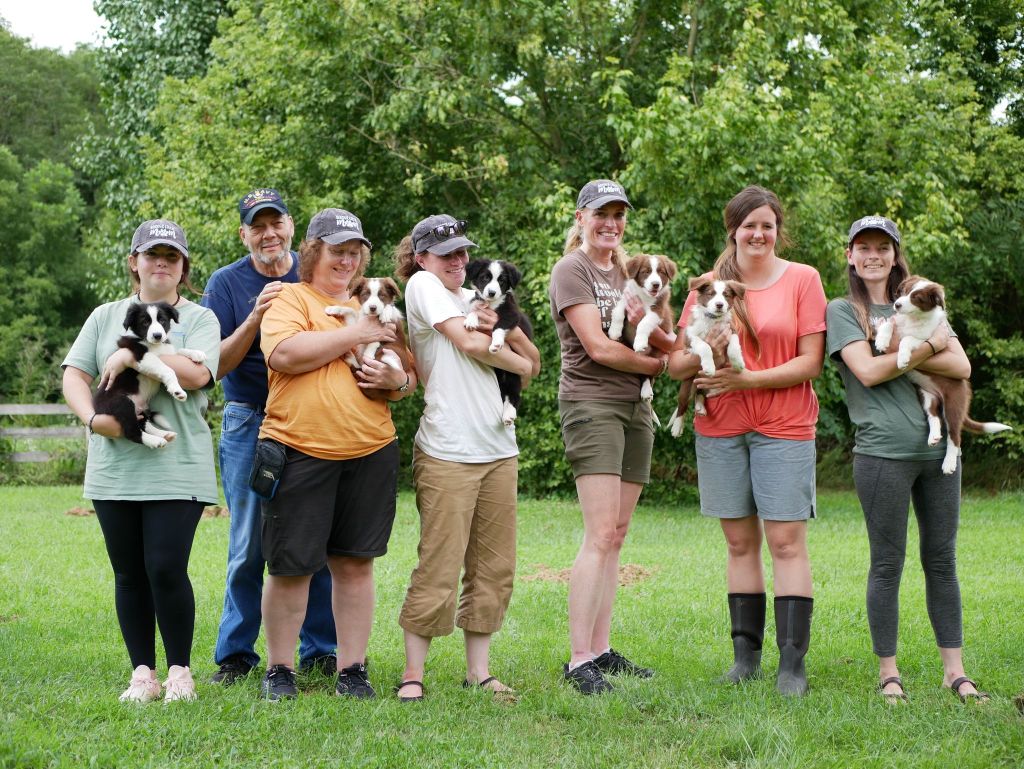
- Puppy Contracts. A contract between breeder and buyer is an essential piece of paper, even if you are close friends. Getting a puppy is a very emotionally charged event, for both breeder and buyer, and a contract protects you both with a rational mindset. It outlines everything that is important to both parties so that if something happens, it can be handled in a way that both parties are ok with. It also allows you to decide if that breeder is the right fit for you, and if what they require out of their buyers is something that you are ready to provide.
- They Will ALWAYS take one of their dogs back, no matter the age or the issue. Just like puppy contracts, this protects the breeder, the buyer, and the dog. It prevents dogs from ending up in a shelter or rescue, which NO good breeder would want, and it is one of the main hallmarks of a good breeder that they will do everything in their power to prevent adding to the homeless pet problem. Once back with them, the breeder can make sure that the dog gets what it needs (medical care, training, new home, etc.). It allows buyers to have peace of mind that if it doesn’t work out, they’re not stuck with a dog they cant handle or afford. It prevents them from feeling like they have no options except to dump it in a shelter. A great breeder will do this with compassion and without judgement.
- Handling Unfortunate Situations. The above all said, no amount of due diligence will prevent bad things from occasionally happening. Sometimes no matter how careful you are about checking, testing, and proving your dogs, behavioral and/or health issues happen. Sometimes dogs don’t work out through nobody’s fault and need to be returned. It isn’t THAT it happens, but rather it’s how it is dealt with that makes or breaks a breeder. A good breeder is transparent about issues, to both their puppy buyers and people that have a vested interest in the breed. They take accountability for mistakes with respect and grace like an adult. They treat puppy buyers that have issues with respect and work with buyers to make things right when the breeder is at fault. And they change breeding decisions based on things that happen to avoid future issues, even if it financially or emotionally hurts them to do so. This is the least fun part of being a breeder, but to me, it’s one of the most important. My adventure with Grin taught me that in a very difficult way.
- A Relationship for Life. This one was very important to me. My pups are my kids, and I wanted everything that went into them to be a part of my life and family too. Not everyone wants that, but at minimum, your breeder should be a resource for you with a professional and polite relationship that is interested and invested in your puppy and what you accomplish with them. At minimum. I wanted more and that is exactly what I got. I made a good friend in Nyxi’s breeder. We talk daily and share pictures of the puppies and their adventures. She also made sure everyone that received a puppy from the litter was connected to each other, and I made even more friends who were going through some of the same speed bumps and endearing quirks and accomplishments and milestones and training that I was at the exact same time that I was. We were all able to support and encourage each other, with the breeder supporting us all, and it really added a lot to the experience. Nyxi’s breeder is always ready to “aww” all of my cute pictures and answer questions I have about everything under the sun related to Nxyi and her relatives. I understand that not everyone wants that. It can make some people feel like the breeder is always looking over their shoulder or judging. It can make some breeders feel overwhelmed with constant messages when they are busy with other things, or that owners are not taking any responsibility for their dog. Finding the RIGHT fit for you in a breeder is just as important as everything else. If you want an in depth relationship, make sure you find a breeder that also wants that from their buyers.
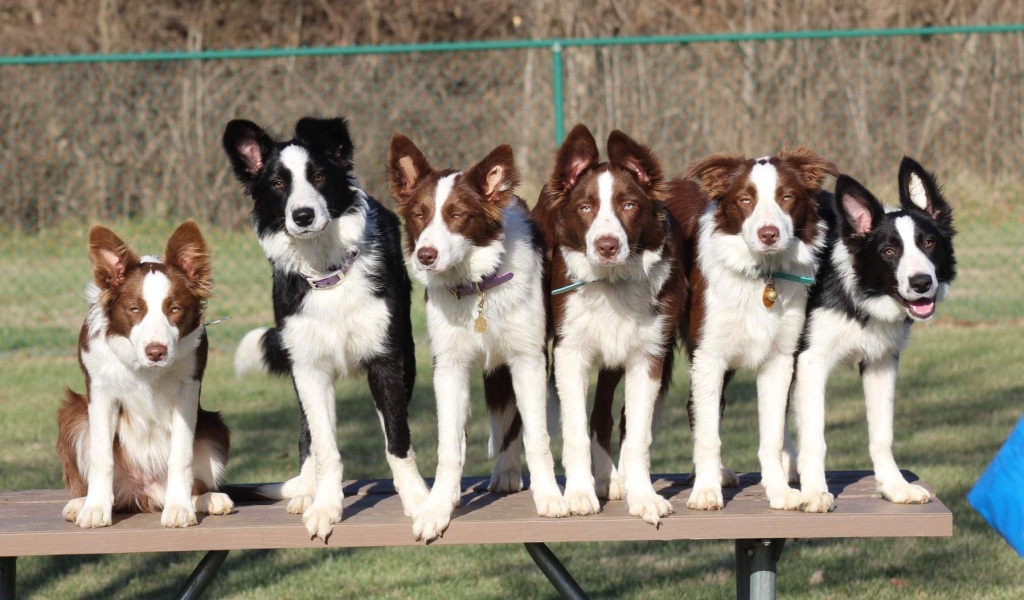
All of this sounds like a lot, and it is. Responsible breeding is a difficult, expensive, time consuming, and emotional process, but the end results are SO very worth it. If you are going to do it, do it right. If you can’t do it right, don’t add to the dog overpopulation. It is one of my biggest “pet-peeves”!
Leave a comment